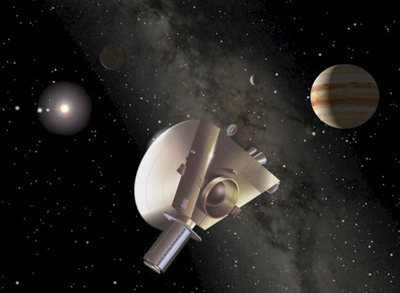This one is just unbelievable, and it's not a joke either:
Some could argue that the noise is louder and meaner than ever. Some say President Bush has polarized this country instead of uniting it after the bitterly contested 2000 election ultimately decided by a 5-4 U.S. Supreme Court decision.
But that's not how Karl Rove sees it.
"Take a look at the language of this president and how he has treated political opponents and compare it to previous administrations -- particularly his most immediate predecessor," says Rove, senior advisor to the president and the guy who runs Bush's political operation.
"You will find that he treats political opponents with dignity and respect," says Rove, who visited El Paso earlier this week for a Bush fund-raiser. "You will not see the kind of personal vindictiveness and vicious comments that came out of the previous administration."
When Bush needles a political opponent, he usually does so with "a bit of good humor," Rove says.
"He has definitely changed the tone in Washington," he says.
But we don't hear much anymore about Bush being a uniter -- not a divider.
"I would make the argument that it takes two to tango," Rove says. In Austin, when Bush was governor, Democrats Bob Bullock and Pete Laney, the lieutenant governor and the House speaker, "were able to put aside their partisan labels and work with the president."
Bush is willing to work with Democrats and share credit with them, Rove says.
But Rove blames Senate Minority Leader Tom Daschle and House Minority Leader Nancy Pelosi for super-heated rhetoric -- such as Daschle's accusing Bush of subverting the Constitution with his recess judicial appointments and Pelosi's calling the president a liar.
But what about Republican House Majority Leader Tom DeLay contributing to the white-hot rhetoric and bitter partisanship?
"I'm sure there's blame enough to go around on all sides," Rove acknowledges.
Thanks to Sadly No! for the peek into the Parallel Universe.

But that's not how Karl Rove sees it.
"Take a look at the language of this president and how he has treated political opponents and compare it to previous administrations -- particularly his most immediate predecessor," says Rove, senior advisor to the president and the guy who runs Bush's political operation.
"You will find that he treats political opponents with dignity and respect," says Rove, who visited El Paso earlier this week for a Bush fund-raiser. "You will not see the kind of personal vindictiveness and vicious comments that came out of the previous administration."
When Bush needles a political opponent, he usually does so with "a bit of good humor," Rove says.
"He has definitely changed the tone in Washington," he says.
But we don't hear much anymore about Bush being a uniter -- not a divider.
"I would make the argument that it takes two to tango," Rove says. In Austin, when Bush was governor, Democrats Bob Bullock and Pete Laney, the lieutenant governor and the House speaker, "were able to put aside their partisan labels and work with the president."
Bush is willing to work with Democrats and share credit with them, Rove says.
But Rove blames Senate Minority Leader Tom Daschle and House Minority Leader Nancy Pelosi for super-heated rhetoric -- such as Daschle's accusing Bush of subverting the Constitution with his recess judicial appointments and Pelosi's calling the president a liar.
But what about Republican House Majority Leader Tom DeLay contributing to the white-hot rhetoric and bitter partisanship?
"I'm sure there's blame enough to go around on all sides," Rove acknowledges.













<<<<< Home